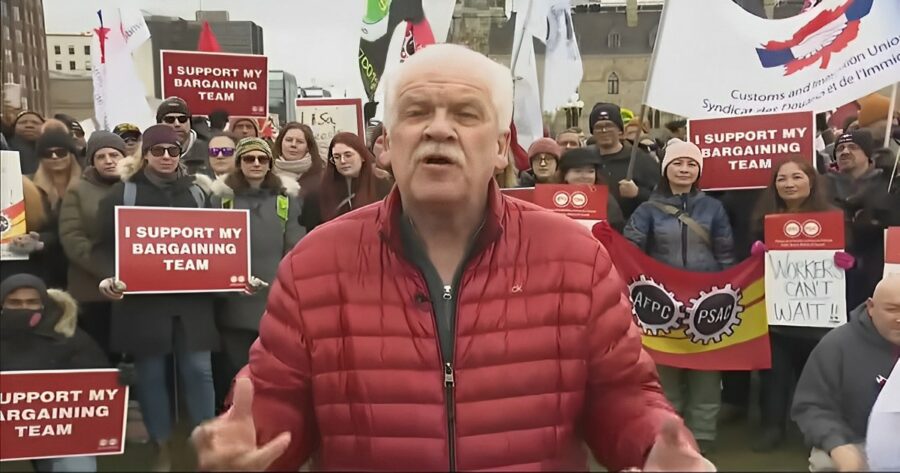On day two of the Public Service Alliance of Canada’s (PSAC) strike, approximately 155,000 workers at 250 locations across Canada continued their walkout. The strike comes after months of negotiations between the union and the federal government, which have failed to reach an agreement on wages and work-from-home arrangements.
The government had recommended a 9% wage increase over three years, but the union is demanding a 13.3% increase over the same period, along with more opportunities to work from home. The strike is affecting 23 federal departments, including passport, immigration services and refugee and border services. However, veterans’ pensions, old age pensions, and unemployment benefits are not affected.
Union president Chris Aylward rallied the strikers on day two, declaring they were ready to continue the strike for as long as it took to achieve their demands. The union is demanding better working conditions and fair compensation for their work, which they argue has become more challenging due to the pandemic.
Aylward added the government is on record saying that Canada has a world-class public sector, and if they truly believe that, they should come to the bargaining table. Whereas Canada’s Treasury Board spokesperson said they believe their offer is fair and they are not giving the union a blank chequebook.
While negotiations between the government and the union are ongoing, the leader of the fourth opposition party, Jagmeet Singh, has expressed his opposition to any back-to-work legislation that would force the strikers to return to their jobs before an agreement is reached. The Liberals have not indicated that they will impose such legislation, but it is a position that they and the Conservative Party may find mutual ground.
The strike has significant implications for Canadians, as it affects essential services the federal government provides. However, the union argues that this is the only way to achieve a fair agreement and that they will continue their strike until their demands are met.
The negotiations are ongoing, and it is unclear how long the strike will continue. However, the government and the union must come to an agreement soon to minimize the impact on Canadians who rely on these essential services. It is important to note that no one gets everything they want in any negotiation. However, both sides will typically receive something that they need. This is the essence of compromise and why it is essential for successful negotiations.









